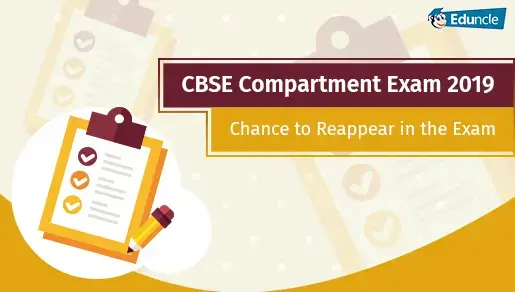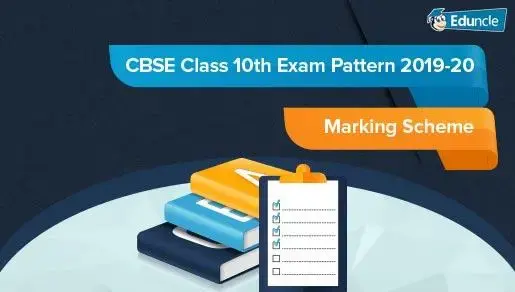
Nowadays, every sector of work has progressed, so the educational field has also been developed. The field of education has a variety of changes compared to moments gone by. New methods are brought into the scheme, and this progress is taking place day after day. One of the new methods used in education is the grading system.
In the past, marks and percentage were the only methods to evaluate students' performance in the examinations.
But now according to CBSE Notifications, a new grading system has been implemented for CBSE Class 10th & 12th students by the Central Board of Secondary Education, by which teachers assess the students' performance in examinations on normal specific scales.
According to this grading system, in order to be promoted to the next higher class, pupils need to receive qualification grades in 4 out of 5 subjects. The board decided not to show pass or fail on the students' mark sheet.
To help students in understanding CBSE Grading System for 10th & 12th class, here we have come up with detailed information related to that.
What is CGPA?
CGPA represents the average cumulative grade point. It is a way of finding out the candidate's general performance throughout the year. It is calculated by adding the grades of all subjects excluding the additional subject, which is split by the total number of all subjects.
To calculate the overall CGPA you can use the following formula:
CGPA = sum of Grade points (main 5 subjects) divided by 5
Multiply it by 9.5 to calculate the percentage from CGPA.
Formula: CGPA X 9.5= Percentage Obtained in Class 10
CBSE Grading System for Class 10th and Class 12th Board Exams
It is important for CBSE Class 10 & Class 12 students to know about Grading System of CBSE. We are here to give you a detailed account of this aspect.
Have a look!
For awarding the grades, CBSE Board shall place all the students passed in rank order and will award the grades as per the following guidelines:
| Grade |
Awarded To |
| A1 |
Top 1/8th of the Passed Candidates |
| A2 |
Next 1/8th of the Passed Candidates |
| B1 |
Next 1/8th of the Passed Candidates |
| B2 |
Next 1/8th of the Passed Candidates |
| C1 |
Next 1/8th of the Passed Candidates |
| C2 |
Next 1/8th of the Passed Candidates |
| D1 |
Next 1/8th of the Passed Candidates |
| D2 |
Next 1/8th of the Passed Candidates |
| E |
Failed Candidates |
Important Notes for Grading:
Minor variation will be made in the percentage of students to adjust tie situations.
All candidates who receive the same score will receive the same grade in the tie case. If there is a need to split the number of pupils into two sections at a score point, the smaller segment will go with the larger segment.
Grading method will be used in the subjects where the number of successful applicants exceeds 500.
For subjects, where the total number of candidates passed in a subject is less than 500, the grading will be done on the basis of grading and distribution pattern in other similar subjects.
CBSE Grading System for 10th & 12th: Advantages and Disadvantages
There are always some advantages and drawbacks of every process or system. Below you can check out the merits and demerits of CBSE Grading System for Class 10th and Class 12th.
Advantages of CBSE Grading System for Class 10 & Class 12
Here is the list of some merits of CBSE Grading System.
Avoid Low Score Pressure
The grading system lowers the pressure to get high marks because the real marks acquired by the student are not written on the report cards in the grading system so that they do not have to target excellent marks and their primary goal is to accomplish excellent grades.
Grading Pattern
It depends on the sophisticated pattern, as grades are not only provided on the basis of academics, but also other things such as attendance, accomplishments, assignments, etc. are also taken into account while making the decision.
Instead of getting excellent marks just by doing well in academics, pupils can perform a little in all modules, to get the excellent grade.
Easy Classification of Pupils
With the grading scheme, educators can classify the pupils into distinct groups such as bright students, average students and under-average students so that educators can pay more attention to the average and under-average pupils and make the idea clearer to them in a better manner because each person has their own understanding ability.
Drawbacks of CBSE Grading System for Class 10 & Class 12
The grading scheme also has some demerits as mentioned below.
Decrease Students Performance
Diminishing pupils’ efficiency is one of the disadvantages of the grading system. Since students know they can easily get the targeted grades so they don't put a lot of effort into the studies and also if the students’ goal is the A grade, they know that if they get 90 marks they are going to be placed under A grade so they don't target 100 marks.
Don’t Get Result Accuracy
The grading system fails to demonstrate the students' precise performance. Instead of the pupils’ real capacity, we can only get to learn about the grade attained by students.
Decrease Competition Spirit
Students simply concentrate on achieving the passing marks instead of focusing on getting the greatest marks, resulting in lower competition among the students making them lazy and dropping their academic level.
Demotivation
The grading scheme demotivates the bright pupils, as the grade A range is between 90 percent to 100 percent, so the student who scores 90 percent gets grade A on the same side the student who gets 95 percent also gets grade A, because of that the brighter students loses their confidence.
Increases Lethargy
As per the CBSE grading system, CBSE CLass 12 Projects, assignments and attendance are counted in the grades. So, in these activities, students perform well and have better grades instead of performing well in exams leading to increased lethargy.
Suggested Reads:
We hope that this comprehensive guide would help you to understand the CBSE Grading System for Class 10 and Class 12.
If have any queries regarding the above information, don’t keep them to yourself. Please let us know about your queries and reviews, everything in the comments’ box below.


















